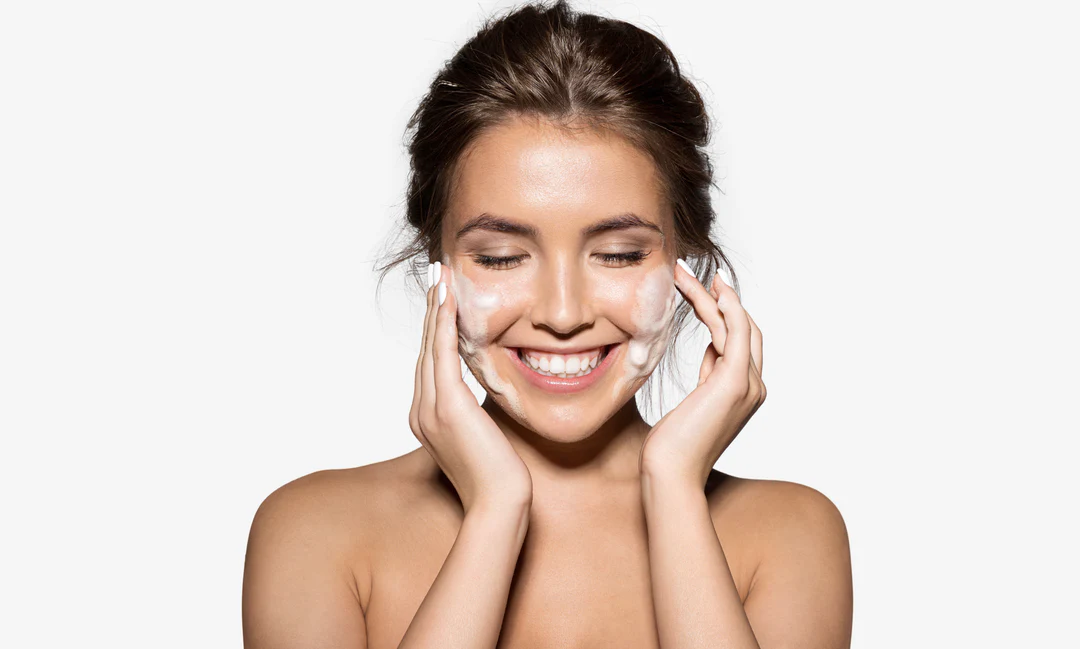
What Skincare Tips Can Help You Manage Dark Spots
Uneven skin tone and dark spots are common problems for many of us. It can be hard to figure out why they appear or how to treat them. Don’t worry, we have the answers for you!
What are dark spots or hyperpigmentation?
Dark spots are pigmented spots on the skin that develop over time. There are three types of dark spots, which come from different sources.
Solar freckles (sunspots)
As the name suggests, solar freckles are caused by UV radiation, which triggers the overgrowth of sunspots, liver spots, and age spots. You’ll notice clusters of damaged cells appearing on your skin. This means that the skin’s natural barrier has developed a hole that allows melanin to flow through and form circular patches that are a bit darker than the skin tone that appears on the surface of the skin.
The more they are exposed to the sun, the darker they become, and if left untreated, they can remain visible on the skin.
Estrogen Fluctuations
You may have heard of pregnancy mask, also known as melasma, which occurs during pregnancy or when taking birth control pills. Melanocytes are stimulated and work overtime to form melanin patches on the skin. Unlike solar lentigo, which consists of neat, circular patches, melasma can grow quite large and cover a larger area of the face. These dark spots will naturally fade over time after the baby is born or if you decide to change your birth control.
Post-inflammatory Hyperpigmentation (PIH)
We’ve all popped pimples and spots at least once in our lives. But what you may not know is that by disrupting and damaging the surface of your skin, you’re actually sending a message to boost melanin production. The pigmentation spreads to the surface, leaving stubborn stains that can stay on your skin for years if left untreated.
How to Remove Dark Spots from Skin?
If you want to remove dark spots, follow these few simple steps:
Protect Your Skin
Using SPF every day should be the most important part of your skin care routine. Be sure to apply a thick layer of sunscreen to your skin to prevent dark spots from getting darker and new ones from forming. Wearing sunglasses and a sun hat is also a good way to protect your skin from the sun.
Skin Peels
This doesn’t have to be a professional chemical peel, although they are great for treating dark spots. If you want a more budget-friendly option, you can use a variety of over-the-counter products to lighten dark spots in the comfort of your own home. Glycolic acid, available in a variety of formulas from toners to serums, removes the outer layer of dead skin cells, exposing new skin cells and removing pigmentation from dark spots.
Take Antioxidants
Antioxidants are dark spots’ biggest enemy, and they are powerful enough to fight all free radicals and environmental damage, such as pollution and UV rays. Vitamin C is a fantastic brightener that can help skin have a smoother texture and lighten dark spots on the skin without disrupting the balance of the skin’s natural melanin production.
Laser Treatments
Q-switched YAG lasers are an excellent treatment for solar lentigines. A wave of light is directed to the skin and absorbed by the dark spots without affecting the surrounding area. A thin crust forms that flakes off after a few days, and the stain disappears.
This treatment is not recommended for other forms of dark spots, such as pregnancy-induced hypertension or melasma, as they do not respond and can cause inflammation and new pigmentation.
These steps have been shown to reduce noticeable dark spots and achieve the best results. However, everyone’s skin is different, and if you’re having trouble removing pigmentation, your next step should be to consult a dermatologist.
How do you treat your dark spots?
You now know how to remove dark spots, but there are other ways to keep them under control, either by making them less noticeable during treatment or by preventing new ones from forming.
Invest in a good skin care routine – Try incorporating AHAs such as glycolic acid into your daily regimen to keep your skin clear and eliminate the buildup of dead skin cells, which can cause pigmentation to stay on your skin longer.
Use corrective makeup – There are concealers specifically formulated to even out skin tone, such as red and dark spots. Using a light apricot concealer can neutralize spot pigmentation, making them easy to cover. Without a tinted concealer, you’ll find that dark spots are still visible through your foundation.
Keep your skin hydrated – By drinking enough water twice a day and using a moisturizer with hyaluronic acid, you’ll ensure your skin’s protective barrier is fully functional and can fight harmful free radicals that make dark spots more prominent.
If you follow the steps above and stick to the advice you have just read, your skin tone will become more even and brighter and your dark spots will become less noticeable to the naked eye.
Why aren’t my dark spots fading or going away?
There are many reasons why dark spots may not fade.
You don’t have to wear SPF 30 or higher sunscreen every day.
You haven’t identified your dark spot type and therefore aren’t using the best treatment.
You use tanning beds which expose your skin to UV rays.
AHA serums aren’t concentrated enough to penetrate the skin.
You continue to pick at your zits and spots.
You’re not giving your treatment enough time to work.
If the answer is none of the above and you still have concerns, contact your GP or dermatologist for further advice.
Will dark spots go away on their own?
Yes, dark spots do in fact go away on their own over time. The time frame is hard to pinpoint as it depends on the type of dark spot. Pregnancy-induced hypertension can take 6 months or more to go away on its own, compared to estrogen fluctuations which can go away within a few weeks after having a baby or switching pills.Sunspots are different because the time of year affects how dark they are, as they are more exposed to the sun during the warmer months.
How to Get Rid of Dark Spots Naturally?
There are many home recipes that can be used to get rid of dark spots naturally. Here is one of our personal favorites for you to try:
At-home mask for dark spots
1 tablespoon full-fat Greek yogurt
1 tablespoon Manuka honey
Lemon juice
Combine all ingredients in a bowl and apply to your face, avoiding the eye area. Leave on your skin for 30 minutes for a healthy, radiant complexion. Use three times a week to reduce the appearance of dark spots over time.
The reason this at-home mask is so successful in treating dark spots is because of the mix of ingredients. Yogurt contains AHA lactic acid, which is known to gently exfoliate the skin and even out skin tone. Manuka honey is rich in antioxidants, which helps to rejuvenate the skin and brighten the complexion. Lastly, lemon can lighten dark spots, which has been shown to be very effective and is a great natural alternative to treating dark spots.
So here is some more information and skin care tips to help you treat and prevent dark spots. Luckily, they’re easy to follow, but the key is consistency. If you follow these steps, you’ll notice that any pigmentation will fade away quickly. If you want to learn more about dark spots, check out our blog on how to improve uneven skin tone for more information.


